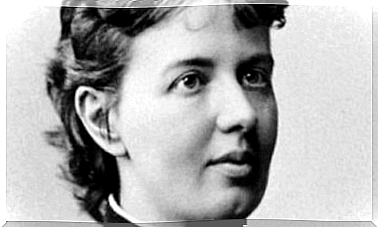Solution Aversion: Common Behavior

Finding common ground to solve concrete problems is never easy. It becomes more complicated when a party’s ideology or personal interests lead them to deny the existence of that problem. This is called solution aversion.
- “Climate change does not exist. A group of people invented it to serve their own interests.”
- “People are poor because they don’t want to work.”
- “I don’t have any health problems, so I can eat whatever I want and I don’t have to exercise.”
These are all examples of what experts call “solution aversion.”
You’ve probably met someone who makes extreme arguments similar to the examples we mentioned above. It can be unsettling and frustrating to listen to. How can anyone deny such obvious evidence? For example, some people still deny the dangers of smoking.
Psychologists have always been interested in why some people refuse to believe clear and convincing scientific evidence. Moreover, solution aversion in the social context we have recently experienced seems to exacerbate political polarization.
In 2014, psychologists Troy Campbell and Aaron Kay (English link) from the University of Oregon investigated and named this phenomenon. Let’s go deeper into it.

What exactly is solution aversion?
A very relevant example of solution aversion is people who deny the existence of climate change. It doesn’t matter that sea levels and temperatures are rising, or that meteorological events are getting more extreme every year. Desertification doesn’t seem to convince them either.
Part of the reason people deny climate change is the fact that they are not happy with the solutions activists are proposing to end it.
Many of the possible solutions are to significantly reduce or eliminate the use of fossil fuels, which involves a complete change of industry and production.
So, if someone doesn’t like a solution, he’d better deny the whole problem completely. But it often doesn’t stop there. In addition to denying the problem, you could go on the offensive and belittle those defending the evidence.
You can see other clear examples of this phenomenon in people who don’t want to change their lifestyle or quit smoking after having a heart attack. Common arguments include, “We’re all going to die from something!” or “My father smoked all his life and he turned 95!”
If your ideology does not allow you to accept solutions
Troy Campbell and Aaron Kay, the psychologists we mentioned above, coined the term “solution aversion” about six years ago. Their solution aversion theory states that two distinct types of people exhibit this behavior:
- Those who do not accept solutions because they do not fit their personal ideology.
- Those who don’t accept them because they go against their needs, preferences, or interests.
The first type is more common and attracts more attention in politics. In the United States, for example, the Republican Party has traditionally resisted attempts to address climate change or gun control laws.
Since this would conflict with their interests, it is easier to simply deny the problem. The Democratic Party, on the other hand, always claims that they are the only social and political group advocating for these changes.

Solution aversion to avoid accepting an issue
Daniel, age 15, was diagnosed with diabetes. However, he does not want to accept this diagnosis. The idea of having to inject insulin or eat less sugar makes him stressed.
Natalia, 68, had just been diagnosed with an eye disease. So she can’t renew her driver’s license. She refuses to accept this and emphasizes that having a problem in one eye does not limit her driving skills in any way. Natalia wants to continue driving.
It’s easy to think of examples of what people do when they don’t like the possible solutions to a problem. We don’t like them because they involve a change of lifestyle. When faced with these possibilities, all too often we react with fear, anger and frustration.
Solution aversion is much more common than you think. However, it can really get in the way of the common good. It complicates our ability to move forward as a society because we cannot work on a solution together.









